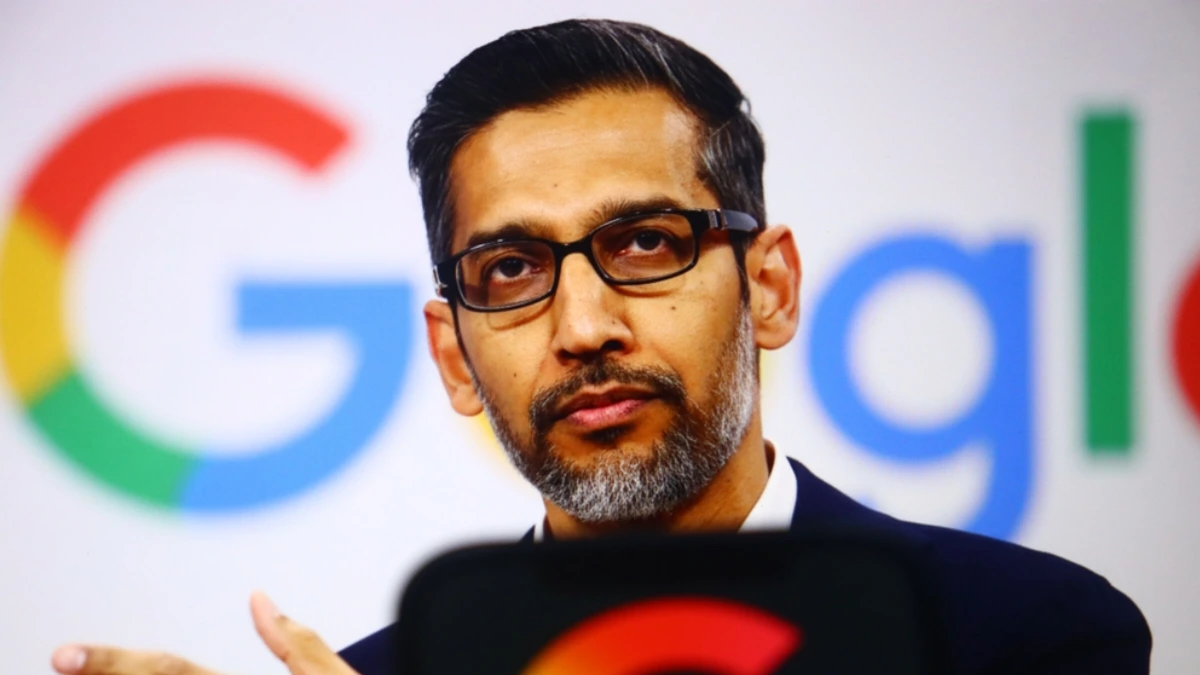SAN FRANCISCO — Every company, including tech giants like Google, could face consequences if the current artificial intelligence (AI) investment boom collapses, Sundar Pichai, chief executive of Google’s parent company Alphabet, told the BBC in an exclusive interview.
Pichai described the AI growth surge as an “extraordinary moment,” but cautioned that some “irrationality” had emerged amid soaring valuations and aggressive spending across the sector.
“I think no company is going to be immune, including us,” Pichai said, addressing whether Google could weather a potential AI market correction.
The warning comes amid growing concerns in Silicon Valley and globally that the AI sector may be entering a bubble phase.
Alphabet shares have more than doubled in seven months to $3.5 trillion, reflecting market confidence in the company’s AI strategy and its ability to counter competitors like OpenAI’s ChatGPT.
Analysts have also noted the rising value of AI related deals, including a complex web of investments totaling approximately $1.4 trillion, despite OpenAI’s expected revenue this year being only a fraction of that sum.
Some experts have drawn comparisons to the dot-com boom of the late 1990s, when rapid investment growth ultimately led to market corrections.
Pichai himself referenced that era, echoing remarks by former US Federal Reserve chairman Alan Greenspan about “irrational exuberance.” He said that, while investment cycles can overshoot, the technology itself remains transformative.
“We can look back at the internet right now. There was clearly a lot of excess investment, but none of us would question whether the internet was profound,” Pichai said.
“I expect AI to be the same. So I think it’s both rational and there are elements of irrationality through a moment like this.”
Economists and AI experts have largely welcomed Pichai’s nuanced perspective, acknowledging both the promise and potential risks of rapid AI investment.
Dr. Helen Morrison, a technology economist at Stanford University, said the market dynamics mirror historical tech booms.
“Investors are enthusiastic because AI shows extraordinary promise, but when valuations outpace revenue expectations, caution is warranted,” Morrison said. “Even companies with strong fundamentals like Alphabet are exposed to systemic risks.”
Similarly, Jamie Dimon, chief executive of JPMorgan Chase, warned last month that while AI investments are likely to pay off, a portion of capital being poured into the sector could be lost.
Alphabet’s aggressive expansion into AI infrastructure highlights both its ambition and the scale of potential market disruption.
The company has invested heavily in specialized superchips that rival Nvidia, whose own valuation recently reached $5 trillion.
Analysts point to Alphabet’s vertically integrated “full stack” model encompassing chips, data, models, and research as a buffer against market volatility. At the same time, the AI industry’s energy footprint is significant.
According to the International Energy Agency, AI operations accounted for 1.5 percent of global electricity consumption last year, prompting calls for investment in sustainable energy infrastructure.
In the UK, where Alphabet has pledged £5 billion over two years for AI research and infrastructure, reactions have been cautiously optimistic. Laura Thompson, a data scientist at London based startup NeuralWave, said the investment could cement the UK’s position as an AI hub.
“It’s exciting to see Alphabet committing to local research and model training,” Thompson said. “But there is also a recognition that AI energy needs and market volatility require careful management.”
Pichai emphasized that AI will fundamentally reshape work and society. “It will evolve and transition certain jobs, and people will need to adapt,” he said.
“Those who do adapt to AI will do better. It doesn’t matter whether you want to be a teacher or a doctor. All those professions will be around, but the people who will do well in each of those professions are people who learn how to use these tools.”
Despite the potential risks, Alphabet plans to continue its global AI expansion, including training models in the UK and pursuing frontier research at DeepMind in London.
However, Pichai acknowledged that the company’s ambitious energy and climate goals, including reaching net zero by 2030, may face delays due to AI’s intensive resource demands.
Pichai’s warning underscores the dual nature of the AI boom transformative potential paired with heightened risk.
As companies navigate investment surges, rising valuations, and unprecedented energy demands, the industry faces both opportunity and uncertainty.
Observers suggest that while some overinvestment may occur, the long term impact of AI is likely to remain profound.
